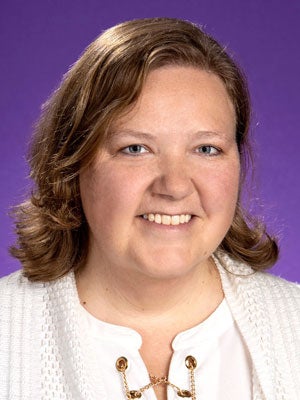Elizabeth Ables

Associate Professor
SCITECH 553
252-328-9770
ablese@ecu.edu
Education
- B.S., St. Andrews Presbyterian College, 1999
- M.S., University of North Carolina at Wilmington, 2001
- Ph.D., Vanderbilt University, 2007
- Post-Doctoral Training, Johns Hopkins University, 2012
Research Interests
My research seeks to understand a fundamental question in stem cell biology:how do adult stem cells sense and respond to changes in whole-body physiology? To meet changing physiological demand, stem cells are particularly dependent upon organismal nutrient sensing systems to balance their unique properties of self-renewal and the production of specialized progeny, allowing for the replacement of cells lost by attrition, regeneration, repair, or remodeling. Stem cell proliferation rates and maintenance of stem cell population size are therefore tightly controlled by the integration of signals from the local environment (or niche) and systemic signals, such as steroid hormones, which fluctuate in response to nutrient intake and other physiological inputs. While many studies have investigated the regulation of stem cells by local signaling pathways, we are only beginning to ascertain the impact of systemic signals on stem cell function. The Drosophila melanogaster ovary, a well-described stem cell-based tissue that responds to external stimuli, is a powerful model system to study the molecular mechanisms controlling stem cell activity in vivo. My long-term research goal is to understand how hormone signaling regulates adult stem cell activity in response to changes in physiological demand. Using well-characterized stem cell populations in Drosophila as models, I take genetic and cell biological approaches to assess in vivo the pivotal role of steroid hormones and their receptors in controlling tissue-specific stem cell behavior.